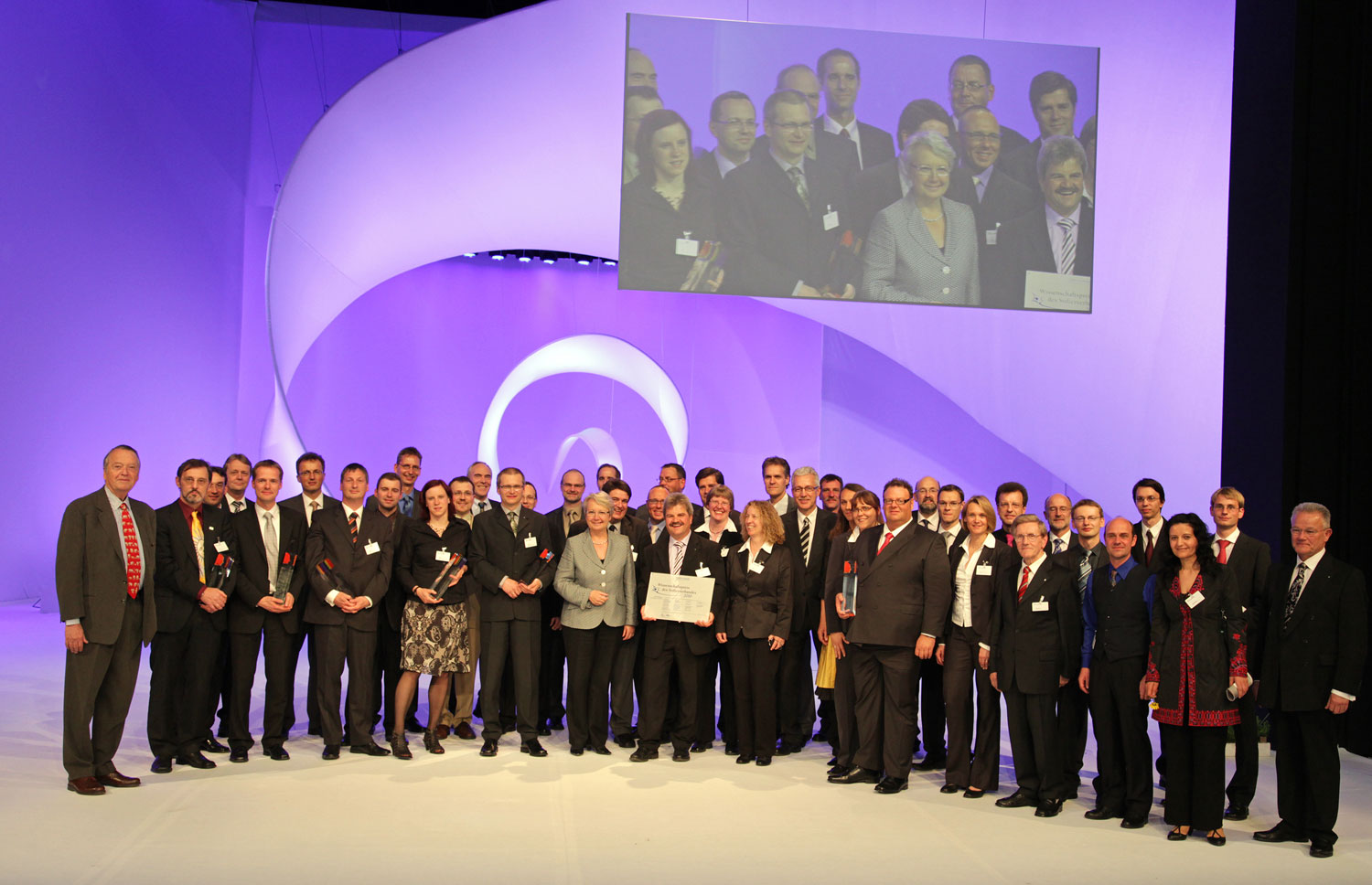Fraunhofer Prize Award 2010
At the annual conference of the Fraunhofer-Gesellschaft the Stifterverband Award and three Joseph von Fraunhofer prizes and three Hugo Geiger prizes were bestowed. The Stifterverband Award recognizes scientifically outstanding joint projects in applied research.

In 1920, scientific representatives founded the Stifterverband (Association of Donors) at the recommendation of German academies, universities and scientific institutions. Its reestablishment after World War II is closely tied to the reestablishment of the „Notgemeinschaft der deutschen Wissenschaft" (German Research Association) on January 11, 1949.
As in the past, the Stifterverband today views itself as intermediary between business and science. Under the aegis of the Stifterverbund, a capital volume of 2 billion euros is administered in 450 individual endowments. For the past 8 years, it has bestowed on the Fraunhofer-Gesellschaft a prize endowed with 50,000 euros. This award recognizes the scientific excellence of joint projects in applied research that the Fraunhofer institutes have developed in conjunction with business and/or other research organizations (Article 1) This prize and the „Technology for Humanity" prize are awarded each year on an alternating basis.